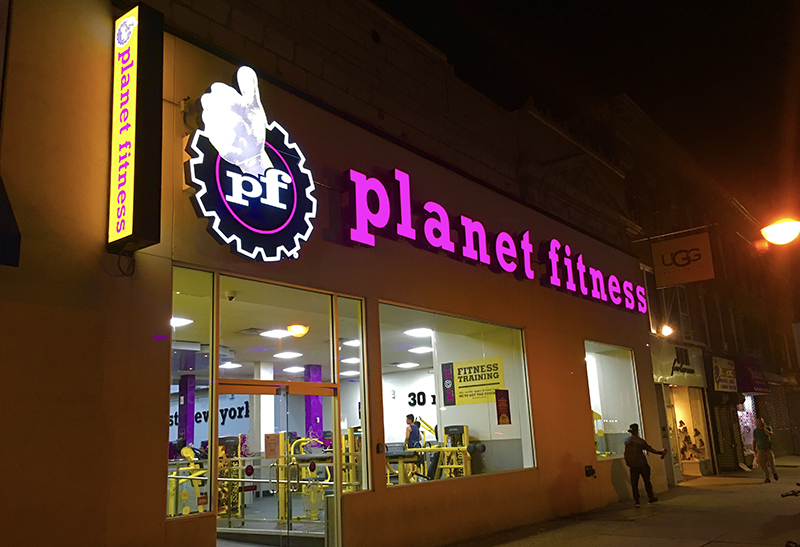Boycotting Bigotry
When the business community threatens to boycott, states think twice about passing anti-LGBT laws

A mixture of hardball politics and economic pressure has led to a major LGBT rights victory in Georgia. After receiving condemnation and threats of boycotts from the business community, Gov. Nathan Deal will veto a “religious freedom” bill that sought to discriminate against the state’s LGBT population.
Deal’s veto ends two weeks of speculation over the course of action the two-term governor would take. The Republican-controlled legislature passed the bill, which critics claimed legalized discrimination against LGBT people and others who do not conform to “traditional” notions of sexuality — such as single mothers. It was touted as a way to protect clergy and religiously-affiliated organizations from being forced to perform marriages that violate their religious conscience. It also gave private businesses, nonprofits and individuals the right to refuse to provide services to LGBT people.
As the bill worked its way through the legislature, Georgia’s business community sprang into action and began vocally opposing it. Metro Atlanta Chamber, the state’s top business group, heavily lobbied against the bill, citing its own studies and others that said the state could lose up to $2 billion if national groups chose to boycott Georgia, or cancel conventions or other events.
“We applaud Governor Deal for his courage in vetoing HB 757,” Metro Atlanta Chamber said in a statement. “In doing so, the Governor confirmed that there is no place in Georgia for legislation perceived as allowing for discrimination. His thoughtful deliberation and consideration on this issue has led to an outcome that preserves Georgia’s positive business climate, encourages job growth and sustains our quality of life, and is truly in the best interest of all Georgians.”
Large corporations like Microsoft, Google, Coca-Cola and Home Depot also issued statements opposing the bill. Companies like tech giant Salesforce and the Savannah-based 373K Telecom either threatened to “reduce investments” in the state or move their headquarters out of state. The NFL stated that the bill might imperil Atlanta’s bid to be the host city for a future Super Bowl.
Even the film industry, including The Walt Disney Co. and Marvel Studios — which has benefitted from tax credits in the state — threatened to pull out if the bill passed. Chad Griffin, president of the Human Rights Campaign, previously called on studios and production companies to stop filming in the Peach State if the bill became law.
The pressure applied by corporate America to Georgian Republicans drew comparisons to a backlash that Indiana experienced in 2015, after lawmakers passed the Religious Freedom Restoration Act (RFRA), which allowed discrimination against the LGBT community. Similar economic threats were made by major corporations or organizations seeking to do business in North Carolina, where the state legislature recently passed a law overturning a pro-LGBT ordinance in the city of Charlotte. Like Georgia, North Carolina overstepped its bounds by preventing all localities in the state from passing their own ordinances, even on issues unrelated to LGBT rights, and added additional provisions legislating which public bathrooms or changing facilities transgender people are allowed to use.
According to Jonathan Lovitz, vice president of external affairs at the National Gay & Lesbian Chamber of Commerce (NGLCC), corporations and their supply chain partners can exert a significant amount of influence over the policy decisions that a state pursues. That’s due, in part, to the economic benefits that their business brings to a state.
“If a bill like the ones in Georgia or North Carolina does get passed, and these corporations physically yank their business, and take their investment dollars and their supply chain members along with them, that has a massive trickle-down effect,” says Lovitz. “Picture the physical footprint of a giant corporation being lifted up out of the ground and moved to the state next door. That’s a gaping hole where opportunity and GDP growth is lost, all in the name of state-sanctioned hatred.”
The best way for a state to ensure it reaps the benefit of investment opportunities, or chances for economic growth, would be to pass nondiscrimination laws that ensure all people are protected under law.
“Corporate America repeats the same mantra that we at NGLCC do every day, which is: Equality is good for business. They see it in their own corporate practices, that to be free to self-express yourself and to be out and welcome in the workplace is great for productivity,” says Lovitz. “And we also see that in the marketplace. When they are actively working to make strategic investments in the gay community and in the cities and states where they live, they are making not only the country better to be an LGBT citizen, but they are making the community better. And the LGBT community is extremely loyal to companies like that.”
Ian Palmquist, the director of leadership programs for Equality Federation, agrees that the decisions by corporations or major employers in a state to speak out against anti-LGBT legislation can have an impact on the legislative process. The outcome in a specific state may depend on various factors, such as the makeup of the legislature and the long-standing relationships that the business community has been able to foster with lawmakers.
“I think the political culture in every state is very different. So there’s no hard and fast rule,” says Palmquist. “I think any time you have major employers speaking out and taking a position, even if it’s short of an outright boycott, has a huge impact. Legislators and decision-makers are deeply concerned about jobs and the economic viability of the state. So having corporate allies, as far as a lot of legislators are concerned when it comes to LGBT issues, really gets their attention in a different way.”
Why was North Carolina’s anti-LGBT law successfully passed, while Georgia’s was defeated? Palmquist believes that it’s down to timing and the rapidity with which the North Carolina bill was jammed through in a special session of the legislature.
“In North Carolina, the legislature really did rush this bill through in less than 12 hours,” Palmquist says. “So our allies in the business community weren’t given the opportunity to see a bill and weigh in. I can’t guarantee the outcome would be different had they used a more normal process for the public debate, but certainly we’re seeing that Gov. McCrory is really feeling the heat now for signing this bill, and facing a lot of backlash from businesses that he really wants to be part of our state’s economy.”
Indeed, following passage of the bill, North Carolina received harsh criticism from LGBT groups, the White House, congressional leaders and others. But the criticism that could most have an impact on policy is that which carries a threat to the state’s economic well being.
Already, the National Basketball Association has issued a statement suggesting it will reconsider holding its All-Star Weekend in Charlotte in 2017. Similarly, the National Collegiate Athletic Association (NCAA) issued an implied threat, saying it would “monitor” the situation to determine whether it would still hold its men’s basketball tournament games in Greensboro in 2017 and Charlotte in 2018. Both organizations stressed the importance of embracing diversity and inclusion in deciding on a host city for the sporting events.
The response from the business community was both swift and damning. American Airlines, which operates its second-largest hub out of Charlotte, as well as major corporations like Facebook, Apple, PayPal, IBM, Dow Chemical and Biogen all issued statements or tweets expressing their distaste for the new law.
Some states and municipalities have piled on, with San Francisco Mayor Ed Lee (D) announcing last week that all city-funded nonessential travel for employees to North Carolina will be barred. On Monday, New York Gov. Andrew Cuomo (D) and Seattle Mayor Ed Murray (D) followed suit, issuing executive orders that institute similar travel bans.
But while economic interests can provide a powerful incentive for states to oppose anti-LGBT measures, equally as effective is a chorus of diverse voices who can put a human face on the issue of LGBT rights. Palmquist cites the example of South Dakota as one where activists successfully took the issue of transgender rights out of the realm of theory and translated what it would mean for real people. That’s why, after meeting with transgender residents and transgender schoolchildren, Gov. Dennis Daugaard vetoed a measure that would have restricted transgender people to using only the bathroom or changing facility consistent with their biological sex at birth.
“You want to have as many different voices speaking out for equal rights,” Palmquist says. “That includes the business community. But it also includes the faith community. It includes LGBT people, and, particularly right now, trans people, telling their stories and putting a face on the real effects that this sort of legislation has.”
Support Metro Weekly’s Journalism
These are challenging times for news organizations. And yet it’s crucial we stay active and provide vital resources and information to both our local readers and the world. So won’t you please take a moment and consider supporting Metro Weekly with a membership? For as little as $5 a month, you can help ensure Metro Weekly magazine and MetroWeekly.com remain free, viable resources as we provide the best, most diverse, culturally-resonant LGBTQ coverage in both the D.C. region and around the world. Memberships come with exclusive perks and discounts, your own personal digital delivery of each week’s magazine (and an archive), access to our Member's Lounge when it launches this fall, and exclusive members-only items like Metro Weekly Membership Mugs and Tote Bags! Check out all our membership levels here and please join us today!
























